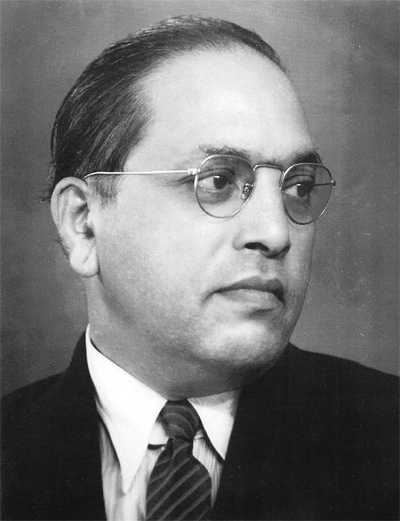Ambedkar set a high journalism bar
SN Sahu
Former press secretary to the late KR Narayanan, President of India
ON the birth anniversary of Baba Saheb Ambedkar today, one recalls his role as an outstanding communicator and the benchmark of excellence he established as the founding editor of several newspapers. His journalistic ethics remained central to his enduring legacy rooted in the values of social justice, woven around the ideals for reclamation of human personality and integral to his vision of social order based on liberty, equality and fraternity.
His journalism was the journalism of regeneration and reconstruction to unchain the exploited and uplift the excluded. The very titles of the newspapers he established testify to his passion and ardour for journalism for social justice and regeneration. The titles, such as the Mook Nayak (Leader of the Dumb), Bahiskrit Bharat (Excluded India), Samata (Equality), Prabuddha Bharat (Enlightened India) and Janata (People) brought out his vision and the content of his editorials flowed from his action which aimed at progressive social transformation.
His journalism was the journalism to address the challenges of counter social revolution affirming the perpetuation of caste and social inequality based on immediate identity and ascribed status, taking into account graded social categories and not on citizenship values.
It is instructive to note that Dr Ambedkar flagged the issue of inequality in the very first issue of Mook Nayak in 1926 and underlined that herculean efforts would be required to free people suffering from social and economic disadvantages in the Indian society, which, he said, is the home of inequality.
At a time when the counter social revolution is spreading in India today and is tragically celebrated even by those occupying influential positions, a journalism for social justice propounded by Dr Ambedkar is required. His writings and actions consistently remained within the framework of law and jurisprudence.
In fact, his journalism was the journalism for public reasoning. Based on logic, argumentation, research and unearthing of ideas and facts, he argued well and established his reputation as a brilliant communicator at a time when there was hardly any support from society for the causes centered around the exploited sections. Dr Ambedkar set an example for the India of the 21st century, which is tragically witnessing din and cacophony in electronic media, negating the culture of communication based on reasoning and argument. When mass media is dubbed as a source of infotainment, the cause of social justice gets obscured and journalistic tradition is driven by predatory commercial considerations.
It is in this context that Dr Ambedkar assumes significance for the 21st century India marked by pervasive media presence and dilution of public reasoning. The weakening of public reasoning in journalism weakens a democracy. Dr Ambedkar's eloquent slogan "Educate, Organise and Agitate" has been interpreted by Professor Amartya Sen as a method of public reasoning. In fact, Baba Saheb's journalism is informed by Education, Organisation and Agitagion. In giving primacy to education and combining it with Organisation and Agitation, he transmitted a revolutionary idea of social change through constructive efforts. His editorials conveyed that idea of social change without employment of violent methods. It is remarkable that his journalism is of abiding significance for our time when public discourse is riddled with passion and impulse which actuates people to take action destructive of reasoning.
In his last speech in the Constituent Assembly, Dr Ambedkar said with deep concern that if Indians, after having adopted and enacted the Constitution, would not follow constitutional methods for achieving the objectives enshrined in it, then "grammar of anarchy" would be the order of the day. There is some "grammar of anarchy" gripping the public life of India today and discourse is often derailed because of absence of reasoning. Invoking the journalistic legacy of Dr Ambedkar is needed today to effect course corrections.
Corporate control of media is the bane of our time. Stating that "Journalism in India was once a profession", he bemoaned: "It has now become a trade. It has not more moral function than the manufacture of soap. It does not regard itself as the responsible adviser of the public." Strong indictment indeed!
Are such observations of Dr Ambedkar not applicable to the journalism today’s times that are often driven by commercial considerations? Setting the standards of journalism, he said, "To give the news uncoloured by any motive, to present a certain view of public policy which it believes to be for the good of the community, to correct and chastise without fear all those, no matter how high, who have chosen a wrong or a barren path, is not regarded by journalism in India its first or foremost duty."
He added that "To accept a hero and worship him has become its principal duty. Under it, news gives place to sensation, reasoned opinion to unreasoning passion, appeal to the minds of responsible people to appeal to the emotions of the irresponsible. … Never has the interest of country been sacrificed so senselessly for the propagation of hero-worship. Never has hero-worship become so blind that as we see it in India today. There are, I am glad to say, honourable exceptions. But they are too few and their voice is never heard".
Can the exception be the norm in the age when media has multiplied and is powerful in shaping the course of history and destiny of India? We need to salute Dr Ambedkar and enrich his legacy which reminds us about the standards of the health of journalism.









